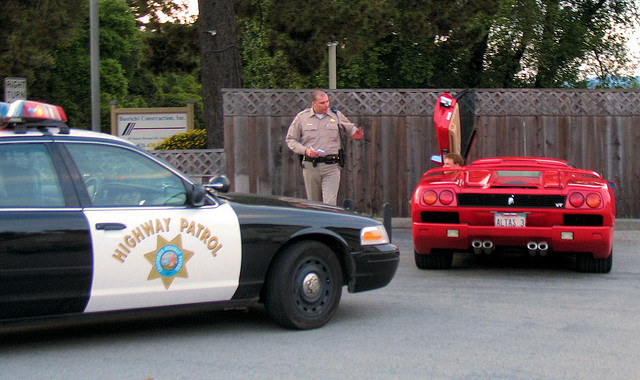The Washington Post has a great story on a database called “Black Asphalt” which is used by police officers in seizing drugs and cash during roadside stops. The database was created by a counter terrorism company called Desert Snow, and has been used by at least 25,000 police officers, DEA officials, Customs agents and others to share information about suspect drivers vehicles.
Operating in collaboration with the U.S. Drug Enforcement Administration, Immigration and Customs Enforcement and other federal entities, Black Asphalt members exchanged tens of thousands of reports about American motorists, many of whom had not been charged with any crimes, according to a company official and hundreds of internal documents obtained by The Post. For years, it received no oversight by government, even though its reports contained law enforcement sensitive information about traffic stops and seizures, along with hunches and personal data about drivers, including Social Security numbers and identifying tattoos.
They have also hosted a competition style honor roll for who seizes the most in cash, drugs and contraband confiscated along U.S. Highways and local community stops. Some people have said this is reminiscent of the term “Highway Robbery”, as when stopped by police, they often have the upper hand in what is termed asset forfeiture. Using these laws police can stop a motorist and if they suspect anything is wrong they can confiscate your vehicle and all property inside just on suspicion of something being wrong. This leaves the hapless driver to go through mountains of legal hassles to get their property back. Often the costs are higher than what was actually confiscated, which results in motorists leaving their property with the police while they seek to buy another vehicle in which to get around in. This database is also used to track and monitor what other police officers think about someone they see on the road using a BOLO (Be On The Lookout) list of suspect drivers and vehicles. The gist of this BOLO list is that other officers can then target suspect vehicles for later searches and possible vehicle or property seizures.
So next time you drive down the road think about what’s in your vehicle and whether or not you look like a target for a roadside seizure by police. According to documents in cases such as these, people who are stopped are often minorities.
The ACLU found that the majority of those stopped nationwide by interdiction programs such as Operation Pipeline were minorities, according to a 1999 report titled “Driving While Black.”
With police forces today getting more militarized, one has to think just how easy it would be to have everything you own taken from you just because you headed down the street to the grocery store for a carton of milk.
Drivers beware..

PIgs what’s the matter with Pigs today?
Repeat indefinitely
As a pro gun, pro take care of myself right wing simple minded troll. I wish all the police were disbanded.
Yeah, I’ll keep that in mind the next time I decide to haul 10 kilos of heroin around.